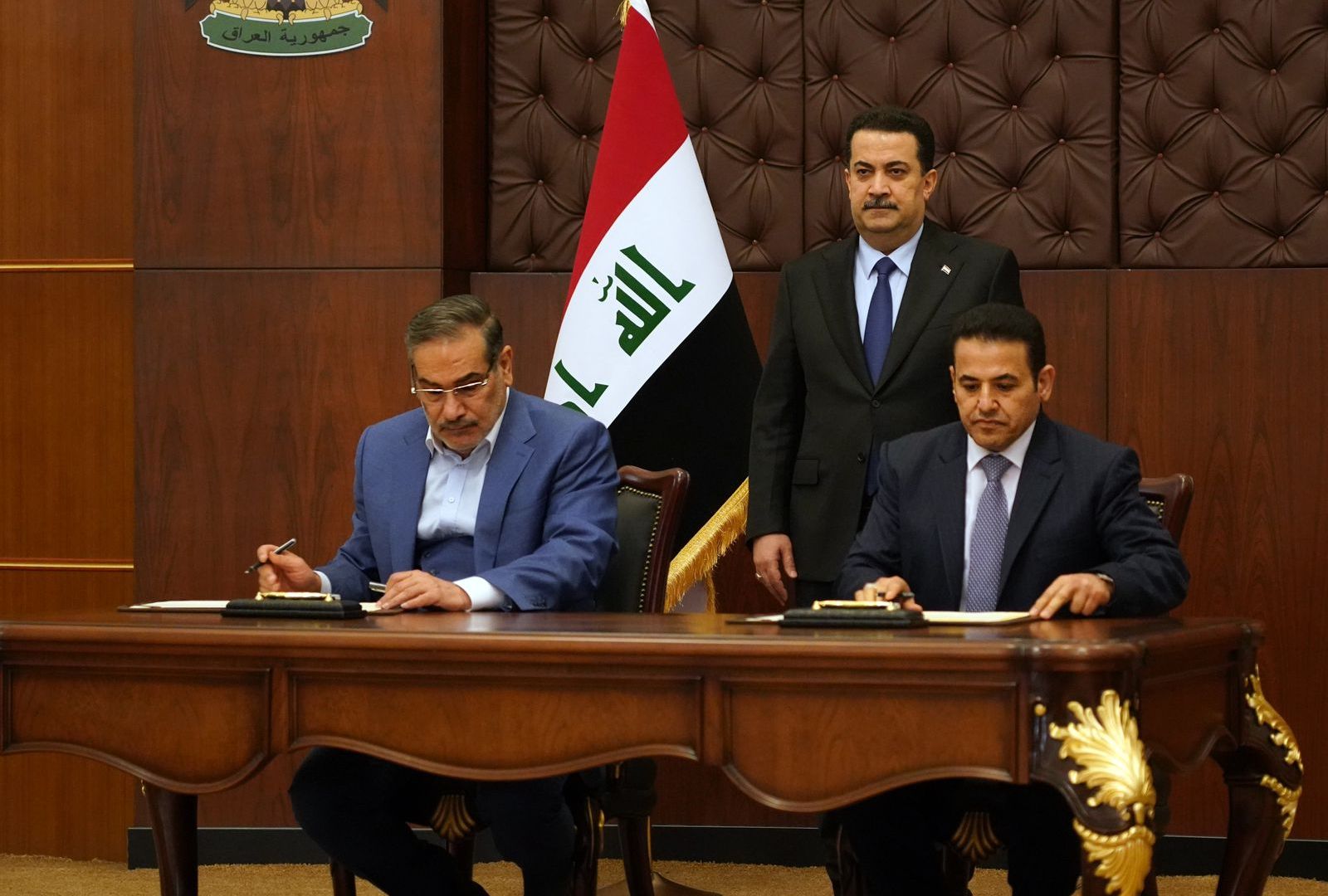Baghdad and Tehran signed a security agreement on Sunday to coordinate on protecting the two countries' shared border, the prime minister's office said, as Tehran says armed Kurdish rebels in Iraq's Kurdistan region pose a threat to its security.
The Secretary of the Supreme National Security Council of Iran Ali Shamkhani arrived on Sunday in Baghdad, on a visit during which he will meet with Prime Minister Mohammed Shia al-Sudani and senior Iraqi officials, to discuss a number of bilateral files, including the file of Iranian debt to Iraq.
The Iraqi Prime Minister's Office said Shamkhani signed the agreement with Iraqi National Security Adviser Qassim al-Araji in the presence of Iraqi Prime Minister Mohammed Shia al-Sudani.
Iraqi pledge
"Under the signed security agreement, Iraq pledges not to allow armed groups to use its territory in the Kurdistan Region of Iraq to launch any cross-border attacks on its neighbour Iran," an Iraqi security official who attended the signing said.
According to the official IRNA news agency, Ali Shamkhani discussed with Iraqi officials "the activities threatening security and aggression carried out by counter-revolutionary and terrorist elements in the region (Kurdistan Region of Iraq) and northern Iraq," and the Iranian official stressed that the security agreement "could put a final and radical end to the aggressive activities carried out by these groups."
The problem of the Iraqi-Iranian border resurfaced last year, when the Iranian Revolutionary Guards launched missile attacks and drones at the end of 2022 targeting Iranian Kurdish groups based in northern Iraq.
Iraq pledged to redeploy border guards to its border with Iran in order to reduce tensions.
Sudanese Statement
During the meeting with the Iraqi Prime Minister, Secretary of Iran's Supreme National Security Council and his accompanying delegation, al-Sudani affirmed "Iraq's firm position rejecting Iraqi territory as a springboard for aggression against any of the neighboring countries, as well as for Iraqi territory to be a theater for the presence of armed groups."
Later, Iraqi Parliament Speaker Mohammed al-Halbousi received Secretary of Iran's Supreme National Security Council Shamkhani and his accompanying delegation, according to a statement by Halbousi's media office, and the statement said that the two sides discussed relations between the two countries, developments in the political situation in the region, and prospects for joint cooperation.
Members of Shamkhani's delegation include Central Bank Governor Mohammad Reza Farzin, some Foreign Ministry officials and the deputy economy minister.
Iraq and Iran are economic partners, especially in the field of energy, as Baghdad relies on Tehran for gas and electricity.

